Events and Activities
New book by Carolin Fleischer-Heininger studies Terayama Shūji and his influence on Japan’s post-war society
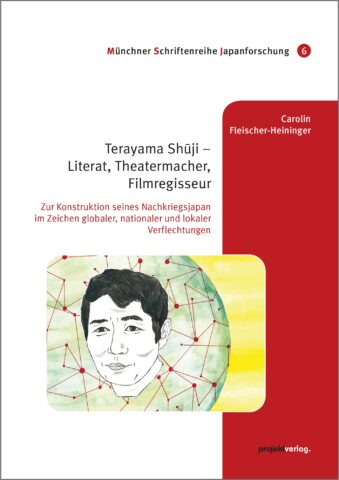
What can literary and artistic works reveal about their time – and how do they shape it? In her new book Terayama Shūji – Literat, Theatermacher, Filmregisseur. Zur Konstruktion seines Nachkriegsjapan im Zeichen globaler, nationaler und lokaler Verflechtungen, DIJ researcher Carolin Fleischer-Heininger explores the construction of postwar Japan through literary, dramatic, and cinematic works of Terayama Shūji (1935–1983). Her study considers the different spatial frames of reference – Aomori, Japan and the world – that guided Terayama’s views and analyses his works with regard to formal and stylistic characteristics. As she shows, Terayama shaped Japan’s cultural landscape by mirroring Japanese society and its narratives. Consequently, Terayama became one of Japan’s most influential and controversial cultural figures. Drawing on theories of globalization and cultural history, Fleischer-Heininger also examines how Terayama’s works negotiate narratives of national identity and historiography in postwar Japan.
DIJ researchers co-organise symposium ‘Loneliness as a Social Phenomenon’
 DIJ researchers Carolin Fleischer-Heininger and Celia Spoden will present their research related to loneliness and social isolation at the international symposium Loneliness as a Social Phenomenon: Cross-Cultural Approaches to a Human Condition. The symposium examines loneliness as a social phenomenon that has increased as a result of social transformations and structural changes. It brings together an interdisciplinary group of scholars and practitioners to explore loneliness and social isolation. To investigate both conditions, it takes a holistic and cross-cultural approach, and explores themes that connect theoretical understandings with practical application. Participants will share their expertise on the ambivalent role of digital technologies; civil-society measures to foster social inclusion; literary representations of loneliness; and the ethical implications of social fragmentation. In addition to academic presentations, the symposium includes an ethnographic film screening, a workshop, and a field trip to a local project addressing loneliness. The symposium takes place in Hanover from June 11 to 13 and is part of the theme week “(Tackling) Loneliness”, sponsored by the Volkswagen Foundation. Details here
DIJ researchers Carolin Fleischer-Heininger and Celia Spoden will present their research related to loneliness and social isolation at the international symposium Loneliness as a Social Phenomenon: Cross-Cultural Approaches to a Human Condition. The symposium examines loneliness as a social phenomenon that has increased as a result of social transformations and structural changes. It brings together an interdisciplinary group of scholars and practitioners to explore loneliness and social isolation. To investigate both conditions, it takes a holistic and cross-cultural approach, and explores themes that connect theoretical understandings with practical application. Participants will share their expertise on the ambivalent role of digital technologies; civil-society measures to foster social inclusion; literary representations of loneliness; and the ethical implications of social fragmentation. In addition to academic presentations, the symposium includes an ethnographic film screening, a workshop, and a field trip to a local project addressing loneliness. The symposium takes place in Hanover from June 11 to 13 and is part of the theme week “(Tackling) Loneliness”, sponsored by the Volkswagen Foundation. Details here
Open access article by Sébastien Lechevalier introduces French–Japanese research project on innovation led by care
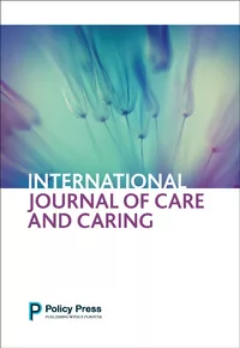
As societies age, eldercare faces mounting challenges that technology alone cannot solve. The article “Care-led innovation: the case of eldercare in France and in Japan”, co-authored by DIJ researcher Sébastien Lechevalier, Yuko Tamaki Welply, Christophe Humbert, Katsunori Shimohara, and Jean-Marie Robine, introduces the French–Japanese research project INNOVCARE, whose aim is to develop fundamental research on the heterogeneous and evolving needs of older adults and to incorporate it into the conception and development of these technologies, with the aim of promoting a form of innovation led by care. Comparing France and Japan and emphasizing dignity, relational autonomy, and quality of life, the study highlights how an ethics of care approach can bridge the gap between social needs and technological innovation, aiming to empower both those receiving care and their caregivers. The article is published open access in the International Journal of Care and Caring (April 2025, early view).
Online Study Group on Mediation of Deaf and Hearing Sign Language Interpreters in Japan

Sign language interpreting plays a crucial role in ensuring effective communication between Deaf and hearing individuals, particularly in highly specialized settings such as court hearings and psychotherapy sessions. However, interpreting in these fields presents unique challenges, as it requires not only linguistic skills but also the ability to navigate cultural nuances, emotional contexts, and diverse communication needs. This research project examines the practices of Deaf and hearing sign language interpreters in Japan, focusing on how they handle demands, interpret nuances, and adapt their interpreting strategies to individual Deaf sign language users. Key areas of investigation include the strategies employed by interpreters in the courtroom, psychotherapy sessions, conferences, and media, and how these strategies vary according to context and audience, as well as their adaptation to the linguistically and culturally diverse needs of Deaf sign language users. This presentation will outline the research project and offer a critical overview of the research methodology employed in the study. Details and registration here
Celia Spoden receives AJJ Mark Bookman Prize

DIJ social scientist Celia Spoden was awarded the Mark Bookman Prize by the Anthropology of Japan in Japan (AJJ) association for her presentation “Avatar Robots as an Alter Ego: New Opportunities for Work or Technological Fixes?” at the joint Japan Anthropology Workshop (JAWS)/AJJ conference in Kobe. Drawing on fieldwork in Tokyo’s DAWN Avatar Robot Café and on interviews with people with disabilities who remotely control an avatar robot from their homes and serve the guests in the cafe, Celia’s paper explores her interlocutor’s motivations and experiences working through the avatar, their perceptions of social participation, work, and disability, and how these perceptions have changed using the avatar. It shows how the avatar robots open up new opportunities for social participation, lead to a feeling of independence and belonging, and challenge common understandings of “disability.” The prize is named after the late Mark Bookman, who was an emerging scholar and a leading authority on disability issues in Japan, and is designed to boost the career of a gifted young scholar researching people with disabilities or other minority groups in Japan.
DIJ Newsletter Spring 2025
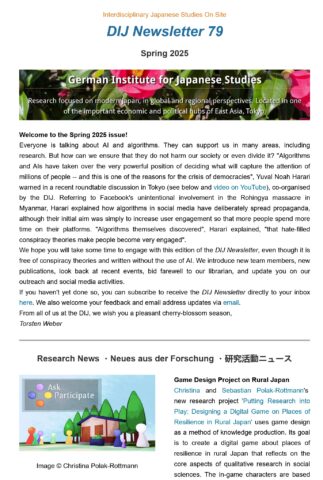
The spring issue of our DIJ Newsletter features updates on our research, publications, and events as well as news from the Institute, our team, and our outreach activities. We hope you will enjoy exploring this new edition of the DIJ Newsletter. If you haven’t done so yet, you can subscribe to receive our Newsletters directly to your inbox. The full issues and subscription form are available here.
New issue of Contemporary Japan published
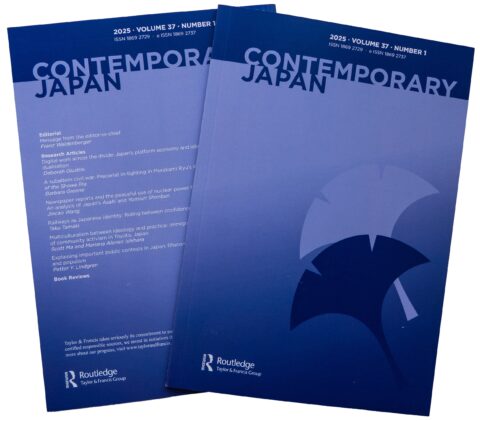 The new issue of Contemporary Japan includes research articles on new forms of labor market dualization in the platform economy (Deborah Giustini), an analysis of Murakami Ryu’s Popular Hits of the Showa Era from the perspective of precarity (Barbara Greene), a discussion of media discourses of the peaceful use of nuclear power in the early postwar period (Jincao Wang), an analysis of Japanese identity construction through railway technology (Taku Tamaki), narratives of multiculturalism and community-building among Nikkei in the city of Toyota (Scott Ma and Mariana Alonso Ishihara), and an assessment of political rhetoric, public contest outcomes, and populism in 21st century Japanese politics (Petter Lindgren). The book review section covers publications on Jesuit enterprise in Japan in the sixteenth and seventeenth centuries, on the impact of the bombings of Hiroshima and Nagasaki on psychological science, on East-West encounters in Japanese art, and on the history of the Japanese business community in Düsseldorf.
The new issue of Contemporary Japan includes research articles on new forms of labor market dualization in the platform economy (Deborah Giustini), an analysis of Murakami Ryu’s Popular Hits of the Showa Era from the perspective of precarity (Barbara Greene), a discussion of media discourses of the peaceful use of nuclear power in the early postwar period (Jincao Wang), an analysis of Japanese identity construction through railway technology (Taku Tamaki), narratives of multiculturalism and community-building among Nikkei in the city of Toyota (Scott Ma and Mariana Alonso Ishihara), and an assessment of political rhetoric, public contest outcomes, and populism in 21st century Japanese politics (Petter Lindgren). The book review section covers publications on Jesuit enterprise in Japan in the sixteenth and seventeenth centuries, on the impact of the bombings of Hiroshima and Nagasaki on psychological science, on East-West encounters in Japanese art, and on the history of the Japanese business community in Düsseldorf.
Blindness as disability: New book chapter by Carolin Fleischer-Heininger analyses novel by Gunji Nanae
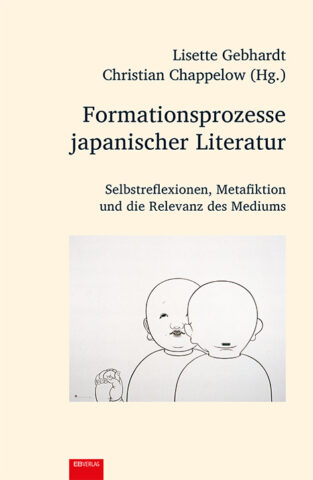
DIJ researcher Carolin Fleischer-Heininger‘s latest publication “Perspektiven auf Blindheit in Beruna no shippo (1996) von Gunji Nanae” studies the discussion of blindness as a disability in Gunji’s autobiographical novel Beruna no shippo. A close reading, taking into account theories from Disability Studies, shows that the novel is aimed at a general public that promotes guide dogs. At the same time, the novel portrays blindness – in particular with regard to mobility and motherhood – as a difference and as a deficit. Carolin’s analysis is preceded by an introductory section on the author, the novel, and the context in which it was written and received. It also includes comments on blindness as a disability in Japan and in Japanese literature as well as a review of related research. Her chapter was published in Formationsprozesse japanischer Literatur: Selbstreflexionen, Metafiktion und die Relevanz des Mediums (EB-Verlag 2025), edited by Lisette Gebhardt and Christian Chappelow.



 Open Access
Open Access
